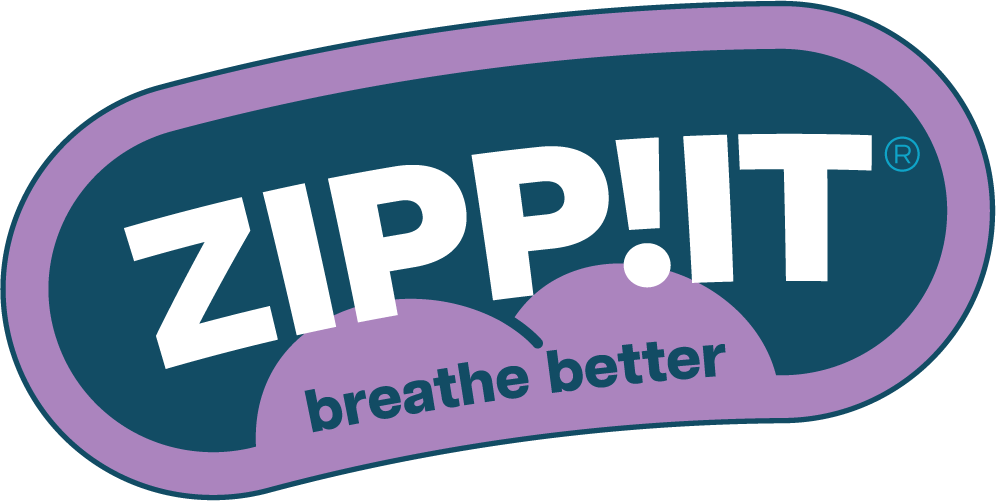Mouth tape for snoring: does it really work?
Have you ever heard of mouth tape as a possible solution for snoring? This simple yet controversial method is gaining more and more popularity.
Snoring isn’t just annoying for your partner—it can seriously disrupt your own sleep quality too. Some people swear by mouth tape as the solution, while others remain skeptical. In this article, we dive into the world of mouth tape and explore whether it can truly help with snoring problems.
We’ll look at how mouth tape works, what science says about it, and how you can use it safely. We’ll also discuss the link between mouth breathing and snoring, and whether mouth tape can actually contribute to a better night’s sleep. Whether you’re a chronic snorer or just curious about this method, this article gives you all the information you need to make a smart choice.

What Is Mouth Tape and How Does It Work Against Snoring?
Mouth tape is exactly what it sounds like: a specially designed tape that you stick over your mouth before sleeping. This prevents you from breathing through your mouth at night. The tape is usually made from hypoallergenic material that sits comfortably and safely on your lips and is easy to remove without damaging your skin.
But how can a simple piece of tape help with snoring? The principle is surprisingly logical. Snoring often occurs when we breathe through our mouths during sleep. With mouth breathing, the muscles in the throat and tongue relax, which can lead to a partial blockage of the airway. The air flowing through this narrowed passage causes the typical snoring sound that keeps your partner awake.
By using mouth tape, you’re forced to breathe through your nose. And nasal breathing has several benefits:
-
It filters the air better, removes allergens, and keeps your airways more moist
-
It produces nitric oxide, which dilates your blood vessels and improves oxygen uptake
-
It keeps your tongue muscles more active, helping keep your airways open
Dr. Mark Burhenne, dentist and author of “The 8-Hour Sleep Paradox,” explains: “Nasal breathing is what human physiology expects. It’s our default mode of breathing and delivers significantly more oxygen to the body than mouth breathing.”
The Relationship Between Mouth Breathing and Snoring Problems
Mouth breathing and snoring are more closely linked than you might think. When you breathe through your mouth during sleep, a lot changes in your airway. Your lower jaw drops, your tongue shifts backward, and the space in your throat becomes smaller. This narrowing causes turbulence in the airflow, making soft tissue vibrate—and that’s what we call snoring.
Research shows that chronic mouth breathing has several downsides:
-
Drier mouth and throat, leading to more irritation and inflammation
-
Increased susceptibility to respiratory infections
-
Possibly worse dental health due to reduced saliva production
-
Decreased oxygen uptake, which affects your sleep quality
Patrick McKeown, breathing expert, explains: “Chronic mouth breathing changes the way our face and jaws develop, and can lead to all sorts of health problems, including sleep disorders and snoring.”
Mouth tape works on a simple but effective principle: by gently keeping your mouth closed, you have to breathe through your nose. This transition can feel a bit uncomfortable at first, especially if you’re used to mouth breathing. Many people experience:
-
A feeling of mild resistance in the first few nights
-
Increased awareness of your breathing
-
Gradual improvement of your nasal passage if it previously felt blocked
-
Less dry mouth upon waking
Do you have chronic nasal congestion or other medical conditions that hinder nasal breathing? Address these underlying issues first before trying mouth tape. A visit to an ENT specialist can help identify and treat any nasal obstructions.
Mouth Tape for Better Sleep Quality: What Does Science Say?
The impact of mouth tape on sleep quality is receiving increasing scientific attention. Although large clinical studies are still limited, available research points to promising results. A study in the Journal of Clinical Sleep Medicine examined the effects in patients with mild to moderate sleep apnea and found improvements in snoring frequency and sleep quality in some participants.
The scientific basis for improved sleep quality with mouth tape rests on several mechanisms:
-
Better oxygen uptake through more efficient nasal breathing
-
Less dry mouth, resulting in fewer interruptions to your sleep
-
More stable airways, which helps reduce snoring
-
Possibly a positive effect on CO2 levels in your blood, which can promote deeper sleep
Dr. Steven Park, ENT specialist and sleep disorder expert, notes: “While mouth tape isn’t the solution for everyone, it can be a simple and non-invasive intervention worth trying for some patients with mild snoring problems.”
Keep your expectations realistic. Mouth tape is not a miracle cure for serious sleep disorders like obstructive sleep apnea, where professional medical treatment remains necessary. For these conditions, CPAP therapy is still the gold standard.
Interestingly, the benefits of mouth tape may extend beyond just less snoring. Users often report:
-
Waking up less often at night
-
Deeper and more refreshing sleep
-
Less headache upon waking
-
More energy during the day
-
Less dry mouth and sore throat in the morning
Practical Tips: How to Use Mouth Tape to Reduce Snoring
Want to try mouth tape to tackle your snoring? Make sure to do it safely and effectively. Here are some practical tips:
Getting Started with Mouth Tape
-
Start slowly: Begin with short periods, for example during a nap
-
Choose the right mouth tape: Only use tape specifically designed for use on the mouth
-
Check your nasal breathing: Make sure you can breathe comfortably through your nose
-
Build up gradually: Extend the time you wear the tape step by step
Proper Placement Technique
Correct placement is crucial for comfort and effectiveness:
-
Make sure your lips and the surrounding skin are clean and dry
-
Place the tape horizontally over your closed lips, not too tight
-
Cover the center of both lips
-
Make sure any ventilation holes are not blocked
Safety Tips
Safety comes first when using mouth tape:
-
Take it easy: If you feel anxious or short of breath, build up more slowly
-
Use the right technique: The tape should be easy to remove
-
Avoid use if you have a cold, sinus infection, or after drinking alcohol
-
Not for children, unless under strict medical supervision
Most people get used to the feeling after a few nights. Still uncomfortable after a week? Then mouth tape might not be the right solution for you.
Did you know that many professional athletes use mouth tape while they sleep? They find it improves their breathing efficiency, which ultimately benefits their performance.

Experiences with Mouth Tape: What Can You Expect?
What can you expect if you start using mouth tape? Experiences vary, but there are some recognizable patterns in user reports.
Positive experiences often reported:
-
Less snoring: Many users report that their partner notices a difference from the very first night
-
Better sleep quality: Sleeping deeper and waking up less often
-
Waking up refreshed: Less dry mouth and sore throat in the morning
-
Getting used to it: The discomfort usually decreases after a few nights
-
More conscious breathing: Breathing more through the nose during the day as well
One user shares: “The first night felt strange, but after three days I was completely used to it. My wife says my snoring has decreased by about 80%, and I feel much more rested in the morning.”
Challenges and Adjustment Period:
Not everyone adjusts equally smoothly. Common challenges include:
-
Initial discomfort: The feeling of tape on your mouth can feel claustrophobic at first
-
Nasal congestion: Some only discover with mouth tape that they have trouble with nasal breathing
-
Skin irritation: Mild irritation can occur with sensitive skin
-
Adjustment time: On average, it takes 3-7 nights to fully get used to it
Another user shares: “The first two nights I kept pulling the tape off in my sleep. From the third night it went better, and now I hardly notice I’m wearing it. My snoring isn’t completely gone, but it’s much softer according to my partner.”
Mouth Tape: A Step Toward Better Nights
After exploring all aspects, we can conclude that mouth tape can make a positive difference for many people in their fight against snoring. While it’s not a miracle cure for everyone, it offers a low-threshold, non-invasive option that’s worth trying.
The science behind mouth tape and nasal breathing is promising. By training your body to breathe through your nose while you sleep, you can potentially improve your sleep quality, reduce snoring, and even breathe better during the day.
Be sure to consult a healthcare professional first, especially if you have health issues. A doctor or sleep specialist can help you determine if mouth tape is suitable for your situation.
Decide to try mouth tape? Remember that patience and consistency are important. Give yourself time to get used to this new habit and try different types of tape to find what works best for you.
Ultimately, a good night’s sleep is about more than just less snoring—it improves your overall quality of life. Whether mouth tape is the solution for your sleep problems, you’ll only find out by trying it yourself. With the right expectations, it could be the key to quieter nights for you and your partner.
Want to try mouth tape? Take a small step today toward better nights and more energetic days!


